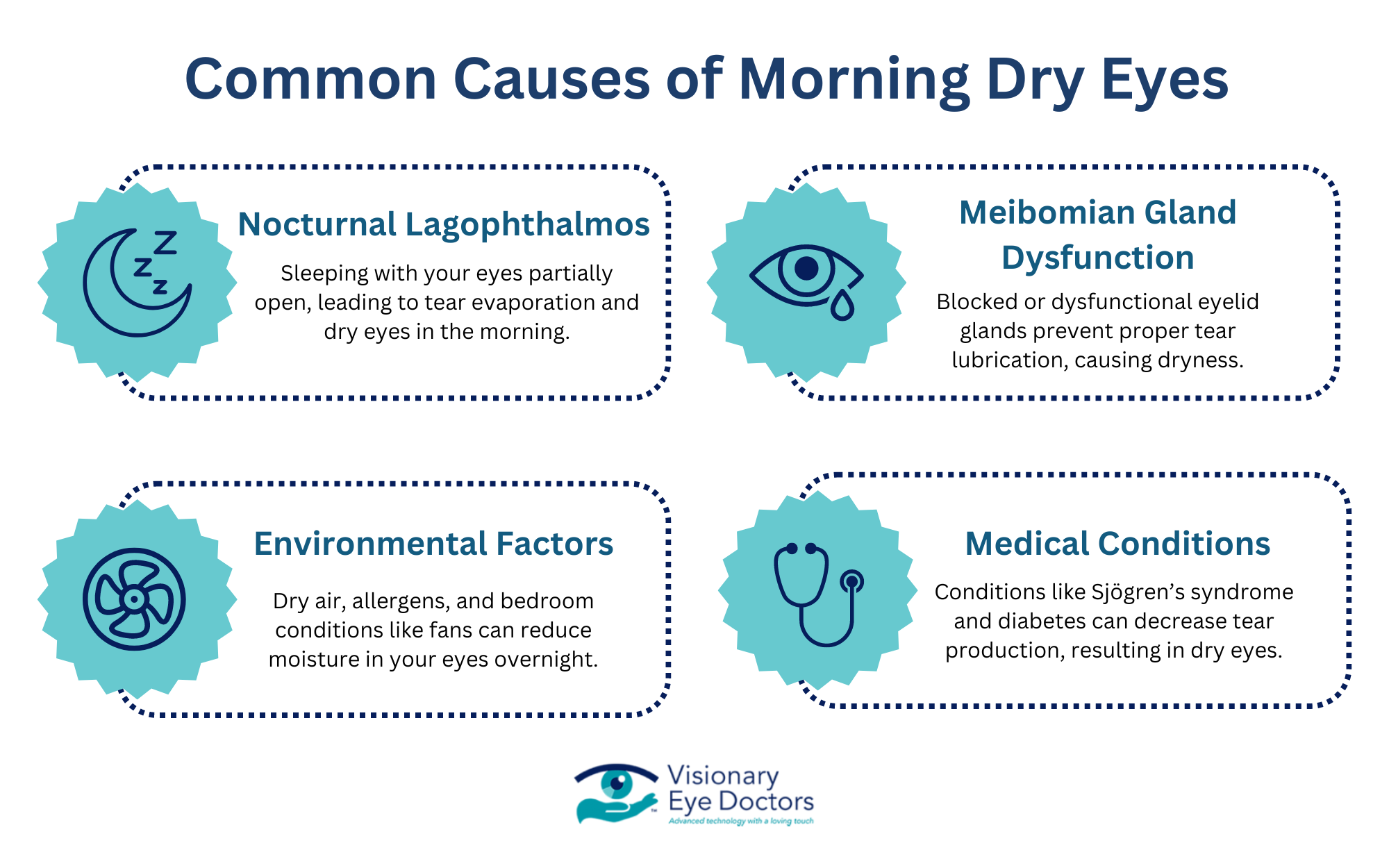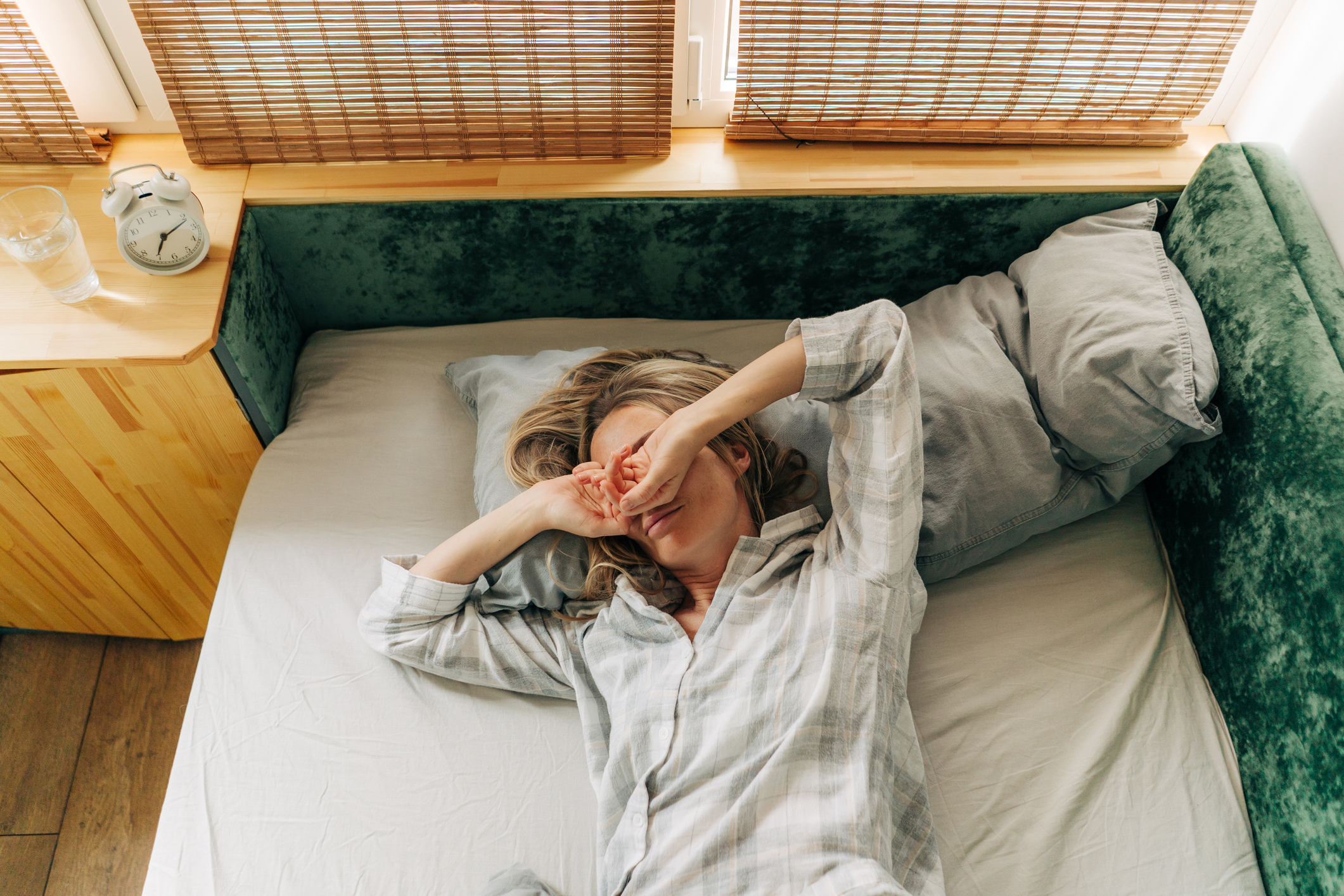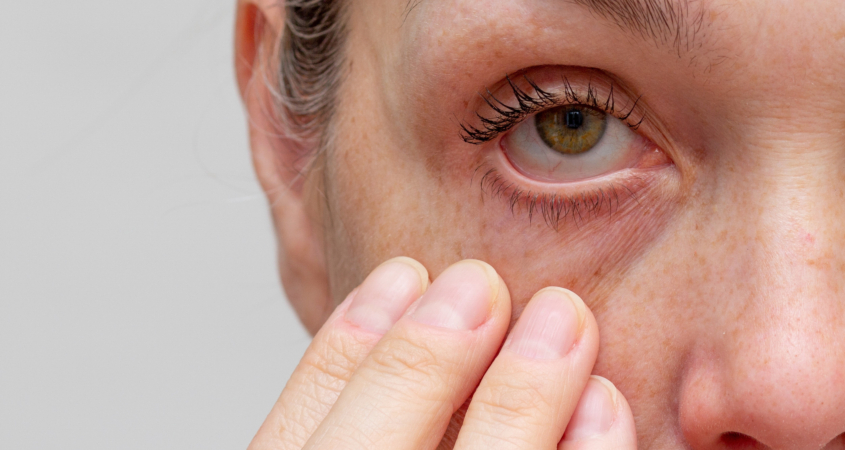Why Are My Eyes Dry When I Wake Up? Causes and Effective Treatments
Waking up with dry, uncomfortable eyes is a common experience for many people. Whether it’s a persistent scratchy sensation, blurry vision, or a feeling of irritation, these symptoms can be frustrating to deal with first thing in the morning. But why does this happen? Several factors can contribute to dry eyes when you wake up, including incomplete eyelid closure during sleep (a condition known as nocturnal lagophthalmos), issues with your meibomian glands that affect tear quality, and even the environment in which you sleep.
Understanding the root cause of your dry eye symptoms is crucial to finding effective relief. In this blog, we’ll explore the most common reasons why your eyes may feel dry when you wake up and discuss various treatment options that can help you start your day with clear, comfortable vision.
Common Causes of Morning Dry Eyes

Waking up with dry eyes can be caused by several factors, each contributing to the discomfort and irritation you feel in the morning. Understanding these causes is the first step toward finding relief.
Nocturnal Lagophthalmos
One of the most common reasons for waking up with dry eyes is nocturnal lagophthalmos, a condition where your eyelids do not close completely during sleep. When your eyes remain partially open, the tear film that normally keeps your eyes moist can evaporate, leading to dry eye symptoms such as irritation and blurry vision. This condition can occur due to issues with the facial muscles, trauma, or simply as a result of how you sleep.
Meibomian Gland Dysfunction
The meibomian glands, located along the edge of your eyelids, play a crucial role in maintaining the health of your eyes by producing the oily layer of the tear film that prevents tears from evaporating too quickly. When these glands are blocked or not functioning properly—a condition known as meibomian gland dysfunction—it can lead to poor-quality tears that evaporate rapidly, causing your eyes to dry out, especially during the night.
Environmental Factors
The environment in which you sleep can also significantly impact the moisture levels in your eyes. Low humidity, especially in winter when indoor heating is common, can dry out the air and, consequently, your eyes. Additionally, sleeping with a fan blowing directly on your face or using certain types of bedding that attract dust mites can exacerbate dry eye symptoms. Allergens like pet dander or dust mites in your bedroom can also trigger an allergic reaction, leading to irritated and dry eyes upon waking.
Medical Conditions and Lifestyle Factors
Certain medical conditions can also lead to dry eyes, particularly in the morning. For instance, Sjögren’s syndrome, an autoimmune disorder, specifically targets the glands that produce moisture, including the lacrimal glands responsible for tear production. Additionally, lifestyle factors such as prolonged screen time before bed, sleeping with a fan on, or wearing contact lenses overnight can exacerbate dry eye symptoms.
These factors, whether individually or combined, can contribute to the discomfort you feel in the morning. Identifying which of these might be affecting you is the first step in managing and alleviating your dry eye symptoms.
Recognizing the Symptoms
If you frequently wake up with scratchy eyes, blurry vision, or a persistent burning sensation, these are clear signs that you may be dealing with dry eye syndrome. Other symptoms can include itchy eyes, a feeling that something is stuck in your eye, and sensitivity to light. These symptoms often worsen in the morning after your eyes have been exposed to the air overnight, particularly if your tear production is insufficient.
The Importance of an Accurate Diagnosis
While it’s easy to recognize the symptoms of dry eyes, determining the exact cause requires a thorough evaluation. An accurate diagnosis is crucial because dry eye symptoms can be linked to a variety of underlying issues, including meibomian gland dysfunction, nocturnal lagophthalmos, or other medical conditions like Sjögren’s syndrome or blepharitis. A comprehensive eye exam is the best way to assess the quality and quantity of your tears, examine the health of your eyelids and glands, and identify any contributing factors.
By recognizing these symptoms and seeking a proper diagnosis, you can better understand the specific causes of your dry eyes and take steps to address them. This approach will help you alleviate discomfort and maintain healthy eyes throughout the day.
Practical Solutions for Managing Morning Dry Eyes

Once you’ve identified the potential causes of your morning dry eye symptoms, the next step is to explore effective solutions that can bring you relief and help prevent future discomfort. Here are some practical approaches to managing and alleviating morning dry eyes.
Home Remedies and Lifestyle Adjustments
For many people, simple lifestyle changes can make a significant difference in reducing dry eye symptoms. One effective method is using a warm compress over your eyes before bed. This helps to open up the meibomian glands and promote the production of the oily layer in your tear film, reducing tear evaporation during sleep.
Additionally, consider adjusting your sleep environment to minimize exposure to dry air. Using a humidifier in your bedroom can help maintain adequate moisture levels in the air, which is particularly beneficial during the colder months when indoor heating can dry out the environment. If you sleep with a fan on, try repositioning it away from your face to avoid excessive air blowing on your eyes.
Over-the-Counter Solutions
Lubricating eye drops and ointments can provide immediate relief for irritated eyes in the morning. These over-the-counter products help to supplement your natural tears and keep your eyes moist throughout the night. For those with more persistent symptoms, thicker ointments applied before bed can provide longer-lasting moisture, helping to prevent dryness by the time you wake up.
When choosing an eye drop, opt for preservative-free options, as they are gentler on the eyes and less likely to cause irritation. If you find that over-the-counter drops are not enough, it may be time to consult with an eye doctor for stronger, prescription-strength solutions.
Medical Treatments and Professional Care
For more severe cases of morning dry eyes, advanced treatments may be necessary. Procedures like meibomian gland expression can help clear blocked glands, allowing the natural oils to flow freely and improving the overall quality of your tears. Another option is punctal plugs, which are tiny devices inserted into the tear ducts to prevent tears from draining away too quickly, thereby keeping the eyes more lubricated.
If your dry eyes are caused by a condition like meibomian gland dysfunction or nocturnal lagophthalmos, your eye doctor may recommend specialized treatments such as TearCare or other in-office procedures designed to address these specific issues. These treatments are often more effective in providing long-term relief compared to over-the-counter remedies alone.
By implementing these practical solutions and seeking professional care when necessary, you can significantly reduce the discomfort of morning dry eyes and protect your eye health. Taking proactive steps to manage your symptoms will help you wake up with clear, comfortable vision each day.
Visionary Eye Doctors—Expert Care for Dry Eyes
At Visionary Eye Doctors, led by the renowned Dr. Sandra Lora Cremers, we specialize in diagnosing and treating dry eye syndrome with a personalized approach. At our Dry Eye Center of Excellence, we utilize cutting-edge technologies and customized treatment plans to address the unique needs of each patient.
Dr. Cremers and her team are at the forefront of dry eye disease research and treatment, offering advanced options such as TearCare and meibomian gland expression to provide lasting relief. Whether your dry eyes are due to nocturnal lagophthalmos, meibomian gland dysfunction, or other underlying conditions, our comprehensive care ensures that you receive the most effective and tailored treatment available.
Don’t let dry eyes affect your quality of life—schedule a comprehensive eye exam with Visionary Eye Doctors today and experience the difference that expert care can make.



